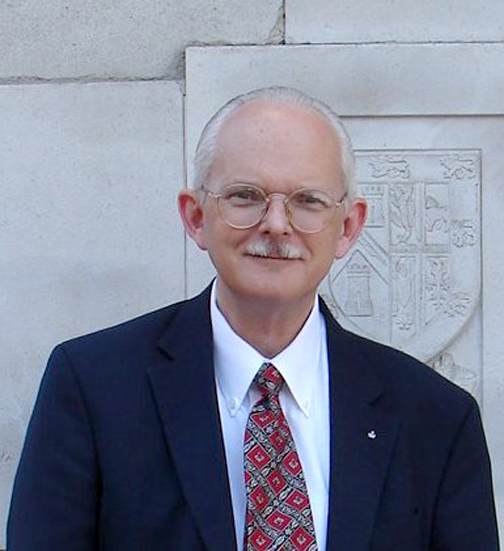Question: We have a neighbor in his late 70s who is constantly complaining about something. Sometimes it’s his health and other times politics. Many of us in the neighborhood volunteer in various capacities in our community. We don’t have time to complain because we’re too busy. We’ve suggested to our complaining neighbor that he could volunteer as well and we’d help him find a place that would keep him busy and happy, but he hasn’t taken us up on our offer.
Is there a way we can convince him to be a volunteer?
~ Happy Volunteers
Dear Happy Volunteers,
First, thank you for helping the community by volunteering. I share your enthusiasm for action rather than apathy. I’m in my mid 70s and retired at 55. I’ve had wonderful experiences volunteering with many organizations and public agencies since then. The pandemic has curtailed many opportunities and raised increased health concerns so my husband and I choose our actions carefully now. We are limiting our activities to outdoor events.
I confess to having limited success over the years recruiting more volunteers. I’ve come to think people respond to a negative appeal more fervently than a positive one. However, as a secular humanist, I believe in the basic goodness of people and continue to try to appeal to their better nature.
Someone your neighbor’s age may have health problems and/or be missing family and old friends who have recently died. His complaints may come from physical pain, sadness at loss of vitality and grief. Current events around the world are pretty grim these days; the level of general anger, anxiety and fear is high. He may just need a sympathetic ear for a while and listening carefully might give you clues to help you match a volunteer opportunity to fixing a complaint of his.
Have you asked him to join you in some specific activity that uses his particular skills and experience? People like to be needed and valued. Or maybe he would engage in some project that reviews history so he can balance the present with good happy memories. I’ve found that reflection on my great fortune to have been able to attend many pleasant past events balances my dismay.
I urge your group to keep your spirits up and hope your neighbor follows your example.

Dear Happy Volunteers,
First of all, thank you for doing your part to assist and be of service to others. You are right that helping others is an effective antidote to feelings of being worthless or valueless, and the accompanying feelings of both anger and depression that accompany such thoughts. Indeed, psychological studies have found that people who get involved in helping others are in general much happier. Certainly, your own experience seems to confirm this as well.
If you haven’t already done so, I would encourage you to invite him to see you volunteer. You can make the invitation non-threatening by suggesting he can leave whenever he wishes (if he has his own transportation); and make it appear a little more of a fun day by maybe going to breakfast or lunch together as well as seeing what it is like to volunteer. Sometimes seeing your experience may be more of a door opener and incentive for him to follow your example than just talking “over the fence” about it.
Ultimately, it is his choice and whatever he chooses should be respected. It may turn out it just isn’t his thing. But it is certainly worth the try based on your concern for him.
There is another approach I would encourage you to take as well. Let it go hand-in-hand with your invitation. Mentally see him as wanting this and being open to it. Ernest Holmes, founder of the Science of Mind, once pointed out that we live in a spiritual universe, that what we mentally think reflects or manifests in the outer or physical world. That even holds true for what we think about other people. Rev. Ike once said that the way we think about others can keep them locked into negative behaviors and situations. For example, if you see or say someone is the devil, don’t be surprised when they act like it. Because what we see inside ourselves in our imagination, beliefs and thoughts (even about others) is reflected into our experience in the outer world.
So you can actually further help your neighbor by changing your mind about him. Instead of seeing a man who only complains about his health and politics, see him renewed in your mind. As St. Paul said in Romans 12:2: “Be ye transformed by the renewal of your mind.” See him actively engaged in service to others and of being of great good and benefit to them. See him as happy and as useful as yourself. How to do that? You can use a simple affirmative prayer to help you change your own idea of your neighbor and the limitations you see in him. Here is an example of an affirmative prayer you can use. It will work miracles. I would encourage you to print it out or memorize it and say it everyday in the morning, or whenever you begin to see him as being his limited “old self.”
“My neighbor is a wonderful human being who is happy, healthy, forgiving and caring. He is blessed with goodness and peace of mind in all things. He raises and blesses others, and himself, with his wonderful and uplifting sacred service to humanity. Thank you, Beloved Father, for this revelation and for this new understanding of my neighbor, and so it is. Amen.”

Anthony Kelson, RScP.
anthony@apkelson.com
Question: We recently had to put down our 12-year-old dog Sassy because she had cancer and was suffering. We asked our daughter, who is 8, and our son, who is 10, to help us make that decision. We explained helping her this way would take away the suffering.
Now, our 8-year-old is inconsolable and is asking questions like, “Will Sassy go to heaven and will we see her again?” We told her we’d ask someone who would probably be able to ask that question. We didn’t want to give her false hopes by making up answers.
What would you tell your child in these same circumstances?
~ Stumped Parents
Dear Stumped Parents,
Sometimes the hardest part of being a parent is the tension that lies in our mature understanding of the world that often strips us of wonder in favor of rational answers. A child’s questions are often of the heart rather than of the head. And the heart’s longing for the afterlife, and the place of loved ones within it, requires a heart-based answer.
Now some will argue that what makes us human is the presence of an eternal soul and therefore the only earthbound beings who make it to eternity are us. Going further, some doctrine states that only those who follow certain tenets of certain faiths find heaven in the end. However, these answers are for the mind that seeks to divide the world into the manageable, the concrete, the predictable. Thankfully, children and those possessed of such wonder do not trifle with such seriousness.
Instead, I find comfort in the writings of the prophets who imagine eternity in which a lion lays down with a lamb, when the wonders of the Garden are restored, when all of creation’s life finds its yearning for salvation to be complete. These images of heaven are less clouds and harps and angelic wings and more grass and laughter and wholeness throughout creation.
The joys of this life are only a shadow of the joy we will find in an eternity defined by love. Of course dogs will be in heaven! The fleeting happiness we experience now are the moments when heaven and earth overlap – imagine when, as prophets imagine, all of creation and all of heaven are one! Our loss and sorrow and grief will be wiped away, redeemed by God’s love for us and for all that God has created.
So give your daughter this wonderful hope and I hope such hope would endure throughout her life.

Rev. Kyle Sears
kylesears@lacanadachurch.org
Dear Stumped Parents,
It is one thing to explain to children about end-of-life issues and lead them through the experiences the best we can. It is entirely another thing to have them participate in making such a decision. I wouldn’t recommend that. By choosing to make them part of the decision to put the dog down, your 8-year-old daughter became overly powerful for her tender time in life. I am not saying that she wouldn’t have come to this existential crisis anyway; however, it certainly brought it to flower sooner and more intensely than it might have been.
Yes, the choice to put your dog down to stop her suffering was correct. However, I fear you involved your children not to make the decision more acceptable to them or easier for them. It seems to be more to take the responsibility off yourselves and, therefore, perhaps unwittingly you put the burden of the decision partly on them. It is hard enough for adults with so much more life experience to face such things.
We love our pets in very deep ways that go beyond words and explanations. We come to know them intimately, their likes and dislikes, their habits, their emotions. They look into our eyes and know us, too. In some cases more than our human companions, certainly differently and more elementally. When we are sad they know it. We see it in their body language and degree of attentiveness. When we are sick, they watch over us until we are well again.
Tell your daughter that our life here is only part of our experience. We love to be on earth to eat good food, run and play, create things that make life more pleasurable and convenient, love one another and grow as human beings individually and collectively; the list goes on and on.
Have you talked about “heaven” before? However you have described that about human beings I suggest you extend to dogs for her. Of course we do not know exactly what there is but for now if you simply extend what you have given your children in the past I think that will be comforting and helpful to calm your daughter’s crisis.

